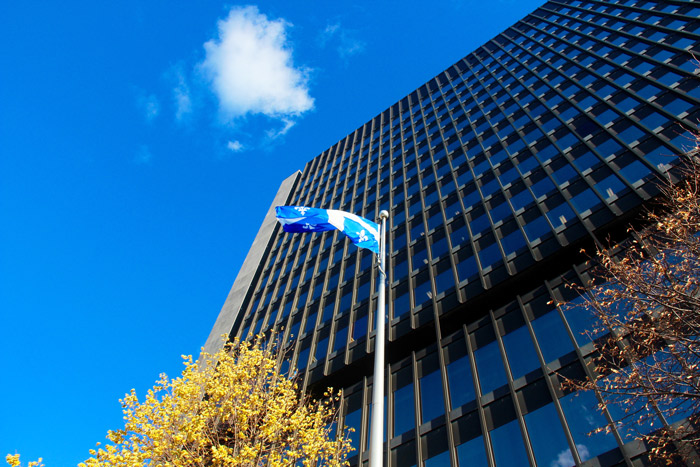On Wednesday Nov. 4, McGill alumnus Elias Gedamu M.ENG‘11 was brought to court by NeuroRx Research Inc., a research organization that images the central nervous system, where he completed research for his Masters of Engineering thesis. McGill Professor Dr. Douglas Arnold, president of NeuroRX, supervised Gedamu’s research and was the representative for NeuroRx present during trial proceedings. In a statement of claim, served on April 9, 2013, NeuroRx called for the destruction of Gedamu’s already published works, including his thesis.s
“NeuroRx […] asks this Honourable Court to issue a permanent injunction, enjoining [Gedamu] to destroy all papers, writing and publications (past, present, or future) in which he has used, uses, or will be using, directly or indirectly, any confidential data and information obtained during his employment at NeuroRx Research Inc. and/or in the context of his work and research as a student at McGill University,” the statement read.
Following a lengthy discussion outside of the courtroom, both parties came to a settlement, the details of which have not been released.
Lack of protective policies
Currently, McGill has no clear policies in place to address a student whose thesis is called upon for destruction, even though the univeristy customarily retains ownership and copyrights of theses published by its students. According to Gedamu’s lawyer, Julius Grey, this is an area that needs to be addressed at the university level.
“It is clear that some new policy must be adopted by Canadian universities to regulate in the interest of both teachers and the use of material that student uses for his or her Masters,” Grey said.
Masters of Physiology student, Ali Gariépy expressed concerns over the ability of students to legally defend themselves against professors or large companies if they were to find themselves in a similar situation.
“Masters students don’t really have the means [to defend themselves], whereas a professor has the university behind them I guess, which would make it a little difficult,” she said.
Data confidentiality
NeuroRx describes the use of confidential information and data in Gedamu’s thesis as a driving force behind their motivation for its destruction.
“That data and information are strictly confidential and belong to NeuroRx’s clients, partners, and sponsors,” the statement reads. “[It is] not meant to be revealed, published, distributed, disclosed or used without prior approval from NeuroRx and its clients, partners and sponsors.”
According to Arnold, while client consent may have been given for information to be used for clinical research purposes, no consent was given for its publication.
“The use of confidential data in research is a very sensitive topic, but an extremely important one,” Arnold said. “There are several reasons why the use and publication of confidential data require approval. One example is that the informed consent provided by patients may not have included the use of their protected personal health information for anything other than the original purpose that they consented to. Another is that that the owners of confidential data have a legitimate interest in what is done with their data, and may place contractual restrictions on redistribution of their data to third parties.”
While conducting research with NeuroRX, Gedamu received a Natural Science and Engineering Research Council of Canada (NSERC) scholarship. An agreement signed between Gedamu and NSERC stipulates the use of research results for publication as a requirement of the scholarship.
“It is the intention of the parties that the students [or] post-docs publish the results of the research activities for the purpose of the students’ [or] post-docs’ thesis, research paper, patents or, more generally, scientific literature,” the agreement reads.
Additionally, Gedamu’s statement of defence claims that NeuroRx was made aware of his intention to publish his findings prior to their publication.
“[NeuroRx]’s representative (Dr. Douglas Arnold) and [Gedamu’s] supervisors (Dr. Douglas Arnold himself and Dr. Louis Collins) were clearly aware of [Gedamu]’s intent to publish his findings and agreed with the idea, the whole appears from e-mail exchanges,” the statement read.
Gedamu has previously published three research papers from 2008, 2009, and 2010 respectively, all of which list Arnold and Collins as authors.
Employee status
A secondary area of contention in the lawsuit is the status of students as employees of the companies where their thesis research is completed. NeuroRx claims Gedamu as a former employee; Gedamu’s defence, however, states this was not the case.
“He was not an employee of [the] Plaintiff, but a graduate student sponsored by [NeuroRx] to pursue research activities pursuant to two successive NSERC Agreements between [Gedamu], [NeuroRx] and McGill,” the defence reads.
The defence additionally claimed that any contracts entered into between Gedamu and NeuroRx after the NSERC agreements had been signed, including agreements concerning confidentiality and disclosure of client information, were void as they went against the NSERC agreement.
“The non-university partner will not ask the student [or] post-doc to sign any agreement or contract without obtaining the university’s consent to such agreement,” the NSERC agreement reads. “Failing this, any other consent will be void, irrespective of the date of signature.”









Relevant: http://www.scc-csc.gc.ca/case-dossier/info/sum-som-eng.aspx?cas=35781
I’m sure this isn’t the whole story, but from the article it seems that someone at NeuroRx didn’t understand the conditions under which the NSERC program is funded. Then when they realized a breach of their policy had occurred (for which they were solely responsible by funding the student through the NSERC program), they backtracked and are now screwing over the grad student. Disgusting.